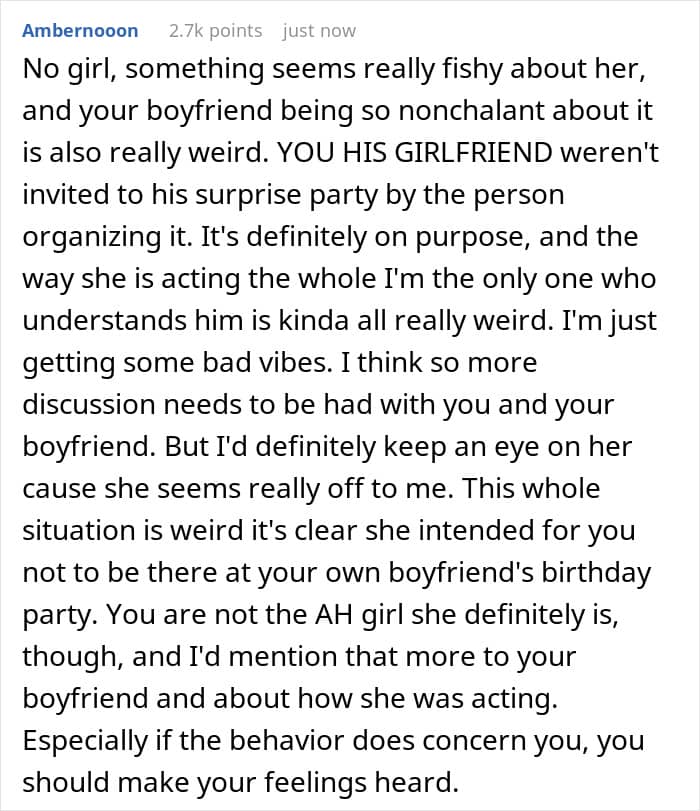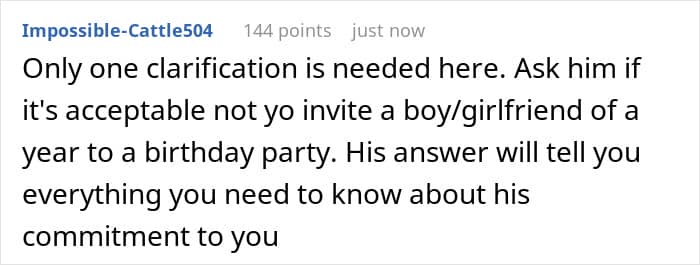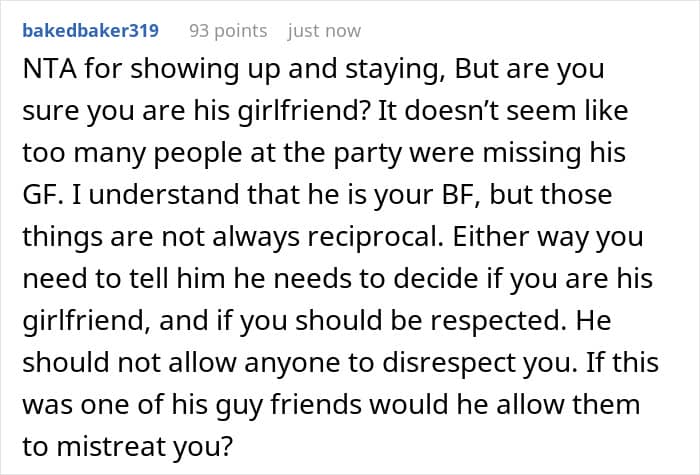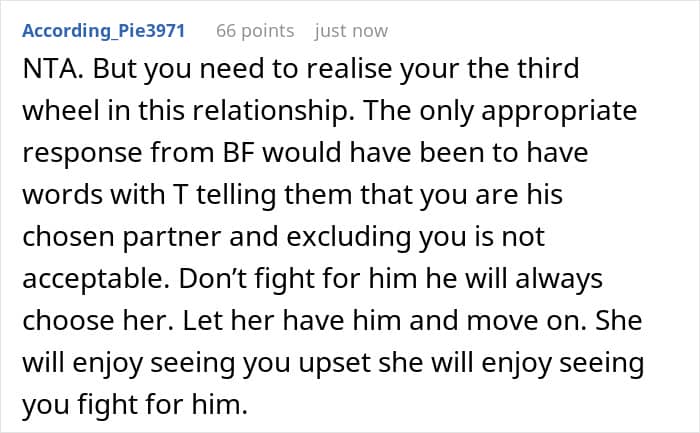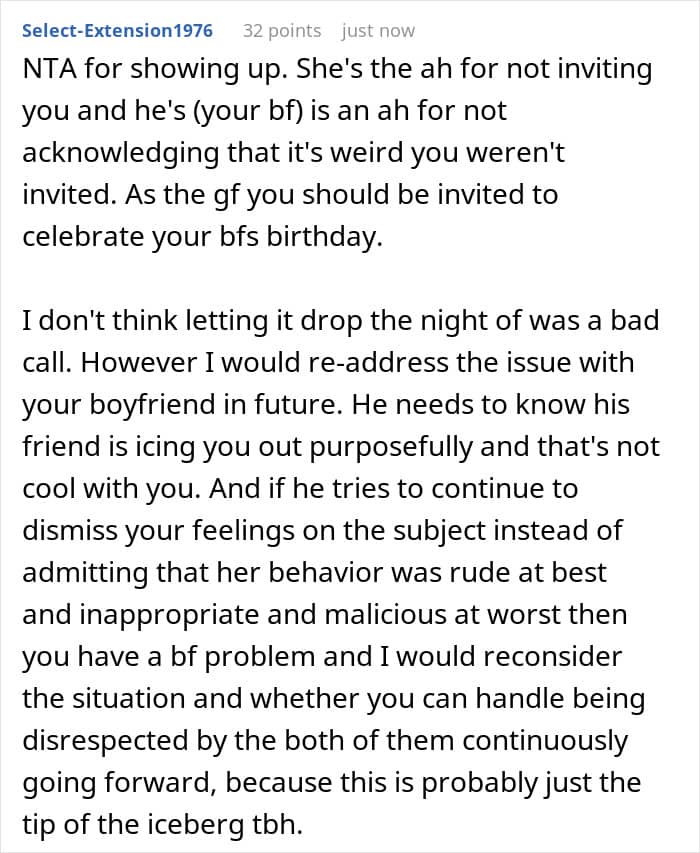In this day and age, it’s not that uncommon to have friends of more than one gender. Indeed, trying to “ban” your partner from anything other than friends of their gender is controlling and weird. But it’s still worth it to keep an eye out, as some “friends” do not have what’s best for your relationship in mind.
A woman asked the internet if she was wrong to show up uninvited and unannounced to the surprise birthday party her boyfriend’s “girl best friend” put together. We reached out to her via private message and will update the article when she gets back to us.
RELATED:It’s easy to feel insecure when your boyfriend has a very involved “girl best friend”

But one woman felt her suspicions were warranted when she learned her BF was having a surprise party without her

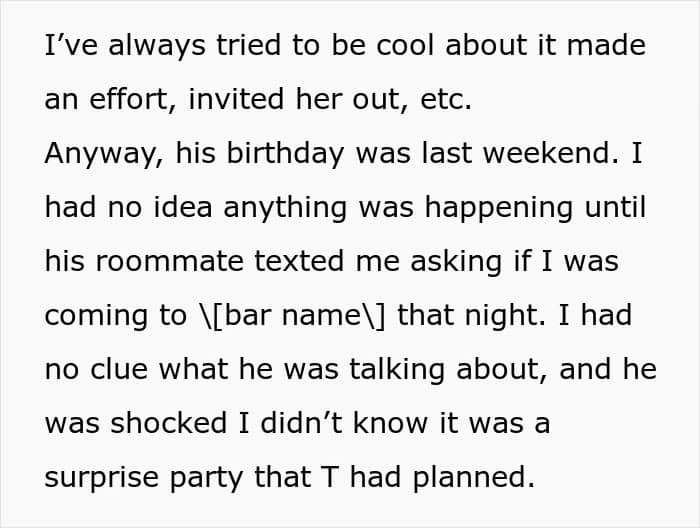
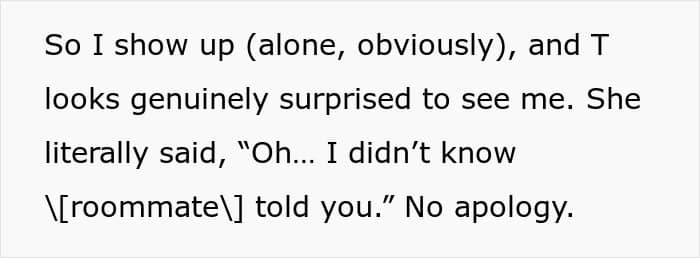

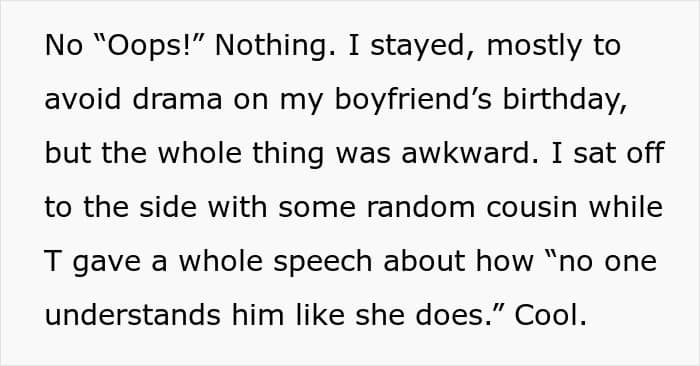



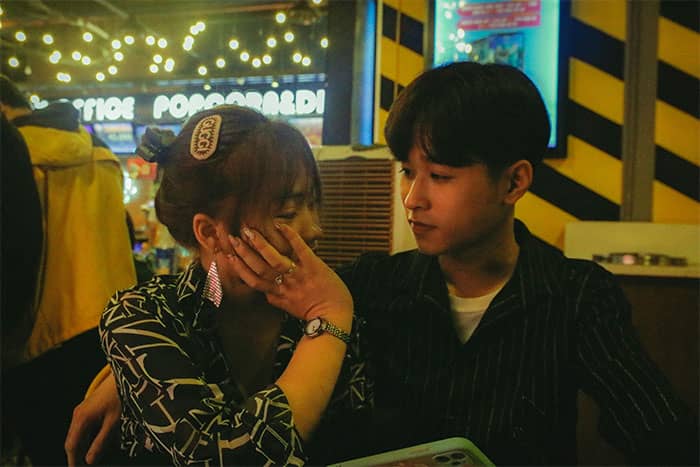
Managing one’s feelings about a partner’s other relationships is complicated
When your partner has a close opposite-gender friend and you suspect something, it can evoke a whole array of messy emotions. It is an uncomfortable feeling to process, especially when your partner will not take your feelings into consideration or brushes them aside as jealousy or insecurity. It is important to understand that your feelings exist, though they are uncomfortable and you may struggle to put them into words. Begin by spending a moment considering exactly what it is regarding the situation that’s causing you to feel uncomfortable. Is it specific behaviors, like secretive text messaging, late-night conversation, or a certain tone in their relationship, that give you the heebie-jeebies? Or is it instead the amount of time your partner spends on this friendship, which makes you feel edged out or less important? Sometimes, your own past experiences or personal vulnerabilities are influencing how you’re viewing the situation, so try to sort out what you know to be reality and what your mind might be making up.
Getting some insight into what you are feeling and why is step number one, and step number two is to communicate this to your partner in a way that is honest but not blaming. Instead of saying, “I don’t trust your friend,” say, “I’ve had uncomfortable feelings about your friendship with this individual, and I need to understand it better because it’s affecting the way I feel.” “I” statements keep the focus on your experience and not on blame, which can lead your partner to become defensive. It’s okay to express vulnerability here, letting your partner know that your feelings stem from a place of caring about the relationship and wanting to feel secure can open the door for a more empathetic conversation.
If your partner dismisses your concerns or laughs them off, it’s important not to let that silence your feelings. Let them know that your emotions are real and deserve to be acknowledged. For example, you might say, “I understand that you don’t see this as an issue, but for me, it’s something I’m struggling with, and I need us to be on the same page enough to talk about it in earnest.” Healthy relationships are built on mutual respect, and that includes respecting each other’s emotional realities even when you don’t always see eye to eye.

It’s important to communicate and set boundaries
In the meantime, observe how your partner responds not just verbally, but in their actions as well. Do they attempt to reassure you? Do they still include you in conversations or social activities with this friend? Are they willing to set clear boundaries that make you feel safe? Openness and honesty can rebuild trust and make you feel less anxious. On the other hand, if your partner consistently minimizes your feelings, hides information about their friendship, or refuses to talk, these are red flags that must not be disregarded.
Sometimes your suspicions are unfounded, and it’s merely a matter of your own insecurity. Other times, your intuition is picking up on unconscious signals that something is wrong. Either way, take care of yourself emotionally. If you’re stuck or overwhelmed, call upon the support of a trusted friend, mentor, or therapist to process your feelings and offer perspective. They can also assist you in establishing boundaries or deciding how to move forward in a way that honors your needs.
Keep in mind that suspicion doesn’t necessarily equate to your partner doing anything inappropriate, but having your feelings ignored or dismissed can still damage your feelings of security within the relationship. You should be heard, understood, and respected. A healthy partnership is about continued communication, empathy, and the openness to discuss the uncomfortable together. When both partners are committed to doing that, even painful feelings can be turned into moments of further connection and trust.
Some readers thought the “girl best friend’s” behavior was strange
